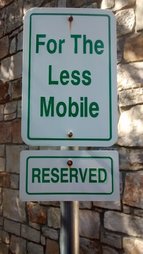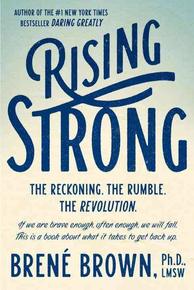 We received only heavy rains in my yard from Harvey.
We received only heavy rains in my yard from Harvey.
After a major tragedy, those of us who are sensitive become much more affected than the general population. That doesn’t mean that others aren’t compassionate, loving and helpful and that they aren’t empathetic to all that is happening. For people who are highly sensitive, however, they can experience genuine and very intense physical and emotional pain just by observing others suffering. The devastation currently going on around us from Hurricane Harvey is causing that kind of corporeal reaction for many who aren’t directly impacted. We know the hurt that those people are feeling, and we’re feeling their pain in our own hearts, too.
For those in Austin, where I live, I am also seeing survivor’s guilt beginning to crop up among clients. We know all too well that those who are suffering in Houston could be (or may actually be) family and friends. They also could be us. Austin is 3-4 hours from Houston and the Gulf Coast. It’s an easy drive. We got rain from Harvey in Austin, but nothing like the catastrophic levels on the coast. Had things been different, we could have been the ones dealing with horrendous damage. Many are beginning to ask the existential question of why them and not us when we live so close to each other.
So how does someone who is sensitive cope with the aftermath of a major tragedy or natural disaster like Harvey? It takes a lot of effort to keep one’s sanity, but it is possible to do it. One of the first things you should do is turn of the television news. All of it. There is not a single channel that is presenting news in a way that won’t impact a sensitive person in a negative fashion. The news is designed to be sensational and to grab your heartstrings. You don’t need that right now. That doesn’t mean you have to totally ignore the news. If you want to stay informed, read the headlines only on a non-sensational site such as APnews.com. Most other news sites are going to be using the same emotional manipulation that the tv news stations use to grab and keep your attention. This isn’t healthy for anyone, but it’s really not healthy for sensitive folks. Read only stories that you absolutely must read to get necessary information.
I also get a lot of info from headlines on Twitter. I have a feed set up that is limited to people who don’t post sensationalism. It lets me stay informed but not overwhelmed. When I do start to feel overwhelmed, I take at least a 24 hour break from social media. Sometimes it requires me to take several weeks away from social media, and that’s ok. It helps keep me sane. I also find my tolerance for Facebook is much lower than Twitter, probably because it’s hard to avoid reading negative comments because of how Facebook’s layout works. And for heaven’s sake, never read the comments on a journalistic site!
When you do look at news, try to focus on the positive aspects of humanity. There are many stories about heroes and helpers from Harvey circulating on the web right now. Those are the stories you should read. They will help keep you moving forward because they make you realize that one person can impact many other people through very small gestures. This story about a ten year old girl helping others in a shelter she is staying in is one such example.
Also, while being bombarded by so many negative stories and events right now, make your recreational viewing lighthearted and uplifting. I’ve been wanting to watch season 5 of House of Cards, but I can’t do it right now because the show is too dark and too realistic for the world we’re living in right now. I ended up binge watching The Good Place while we were inside during Harvey’s rains, and it’s a fun comedy that still deals with some pretty cerebral topics. Find whatever will make you smile or laugh, and indulge in that.
After keeping yourself protected, what can you actually do to help with Harvey and other devastating events? The first thing a sensitive has to do is accept that you can’t fix it all. You shouldn’t try. Many of us will see the big picture and realize that there are hundreds of thousands of people suffering. As we play out all the devastation that they are enduring in our minds, we overwhelm ourselves with too much information and too much to fix. Don’t go there. It doesn’t mean you’re being unsympathetic to all of the suffering around you. It means you are being realistic about what you can do, and it also means you are taking care of yourself. So rather than becoming overwhelmed trying to contemplate the entire tragedy, bring the big picture down to a more manageable size. Focus on what you can actually do to help and on doing your part of the solution. While what you do won’t solve every problem out there, if each of us does something, that will make a difference. All of the little things add up quickly. There are so many different ways to help, so your challenge is to figure out how best you can give.
One of the easiest ways for many who have reasonable or abundant income is to give money. Financial donations can be used to buy supplies in bulk and help with overhead costs for shelters and relief organizations. I’m not going to list any links because there are so many websites out there right now with various organizations you can help. I personally chose to split my donations between two groups, one which helps humans and one which helps animals. Most importantly, if you are giving money, please don’t take this donation from the non-profits you normally support. They are still going to need assistance, too. Instead, find a different place in your budget to make the sacrifice to help those in crisis.
If you worry about giving money to an organization and it not making it to the intended recipients, then there are many drives for items happening around Austin. Diapers, menstrual hygiene products, new underwear, cleaning supplies, and non-perishable food items are among some of the things being collected. If all you can afford to do is buy an extra bar of soap or can of beans and add it to a collection basket, that little bit still helps. You have given as much as you can, and that donation will be very much appreciated by someone on the receiving end of the line.
The next way you can help is by giving your time and labor, especially if you are in areas that are adjacent to the tragedy like Austin is. There are so many different ways to go about doing this. Figure out what special talents or skills you have and if any of those can assist those currently suffering. I have seen posts about midwives, aromatherapists, therapists, lawyers, musicians, ministers and more volunteering their professional services to those affected by the hurricane.
For those whose talents aren’t easily applied in the current situation, general labor is needed, too. The Red Cross is full with volunteers from what I’ve heard, but other groups need help as they hold fundraisers and drives. If your church, neighborhood school, business or other community association is helping out, join in with them. Foster families for animals who are displaced by the storm are very much needed in Austin, too. Givepulse.com is listing local ways to get involved in Texas.
Another way that you can assist with efforts is to help the helpers. For example, due to my current medical treatments, I am not physically strong enough to work at a shelter or a drive. I’m realistic about that. However, what I can do is take my kids for an extra evening so that my ex-husband, who is healthy and able-bodied, can go volunteer more of his time to the recovery effort. Aside from providing childcare, consider helping with driving if needed for volunteers or events. Offer to listen to those sharing the stories of their experiences helping during a tragedy because they will need emotional support. Make a meal for friends or neighbors working as volunteers so when they get home from a long day of being on their feet, their self-care cups will get a bit of replenishment.
If there is nothing else you can give because of your own difficult personal circumstances, then pray or send good thoughts out to those who are suffering and those who are helping. Studies have shown that prayer does make a difference for people who are ill, even if they don’t know that they are being prayed for. I truly believe we can impact our world through our thoughts, so send out positive ones to those who need them in this stressful and horrendous time.
Most of all throughout the recovery from this tragedy, if you are highly sensitive, don’t try take on others’ pain. This is a downfall that many sensitive healers often engage in. We want to help others so much that we metaphysically and emotionally take on the burdens of others when they aren’t ours to endure. It’s a hard lesson to learn that if you take on others’ pain, you will make yourself sick(er). During all of your efforts to help, you need to keep yourself well so you can continue to help in whatever ways you can. Taking on others’ pain for them will not truly help them or you.
©2017 Elizabeth Galen, Ph.D., Green Heart Guidance, LLC



 RSS Feed
RSS Feed